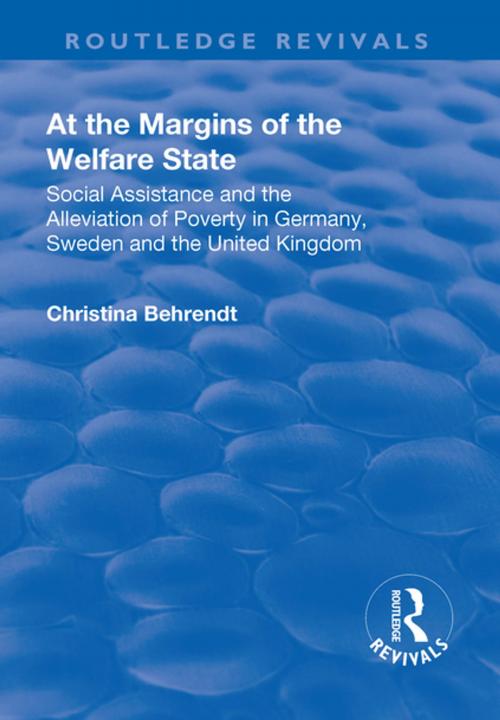At the Margins of the Welfare State: Social Assistance and the Alleviation of Poverty in Germany, Sweden and the United Kingdom
Social Assistance and the Alleviation of Poverty in Germany, Sweden and the United Kingdom
Nonfiction, Social & Cultural Studies, Social Science| Author: | Christina Behrendt | ISBN: | 9781351741880 |
| Publisher: | Taylor and Francis | Publication: | January 18, 2018 |
| Imprint: | Routledge | Language: | English |
| Author: | Christina Behrendt |
| ISBN: | 9781351741880 |
| Publisher: | Taylor and Francis |
| Publication: | January 18, 2018 |
| Imprint: | Routledge |
| Language: | English |
The persistence of poverty in advanced welfare states casts doubt on the fundamental operating procedures of income distribution and redistribution. What are the reasons for this apparent failure of the welfare state in alleviating poverty? Why are some countries more effective than others in this respect and what can explain these variations in effectiveness? Addressing one of the major puzzles in comparative welfare state research, this volume examines why there is income poverty in highly developed welfare states. Focusing on the basic safety net of the welfare state, it offers a systematic analysis of the effectiveness of minimum income schemes in a comparative study across three highly developed welfare states: Germany, Sweden and the United Kingdom. Blending insights from a combination of institutional information and quantitative data from income surveys, the author evaluates the causal mechanisms for the persistence of income poverty in highly developed welfare states and derives conclusions for political reforms
The persistence of poverty in advanced welfare states casts doubt on the fundamental operating procedures of income distribution and redistribution. What are the reasons for this apparent failure of the welfare state in alleviating poverty? Why are some countries more effective than others in this respect and what can explain these variations in effectiveness? Addressing one of the major puzzles in comparative welfare state research, this volume examines why there is income poverty in highly developed welfare states. Focusing on the basic safety net of the welfare state, it offers a systematic analysis of the effectiveness of minimum income schemes in a comparative study across three highly developed welfare states: Germany, Sweden and the United Kingdom. Blending insights from a combination of institutional information and quantitative data from income surveys, the author evaluates the causal mechanisms for the persistence of income poverty in highly developed welfare states and derives conclusions for political reforms















